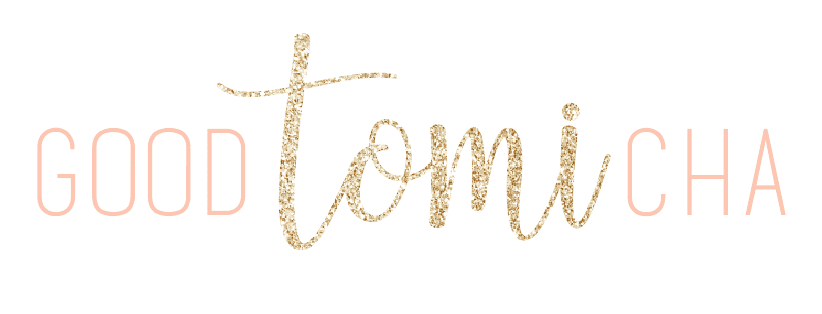
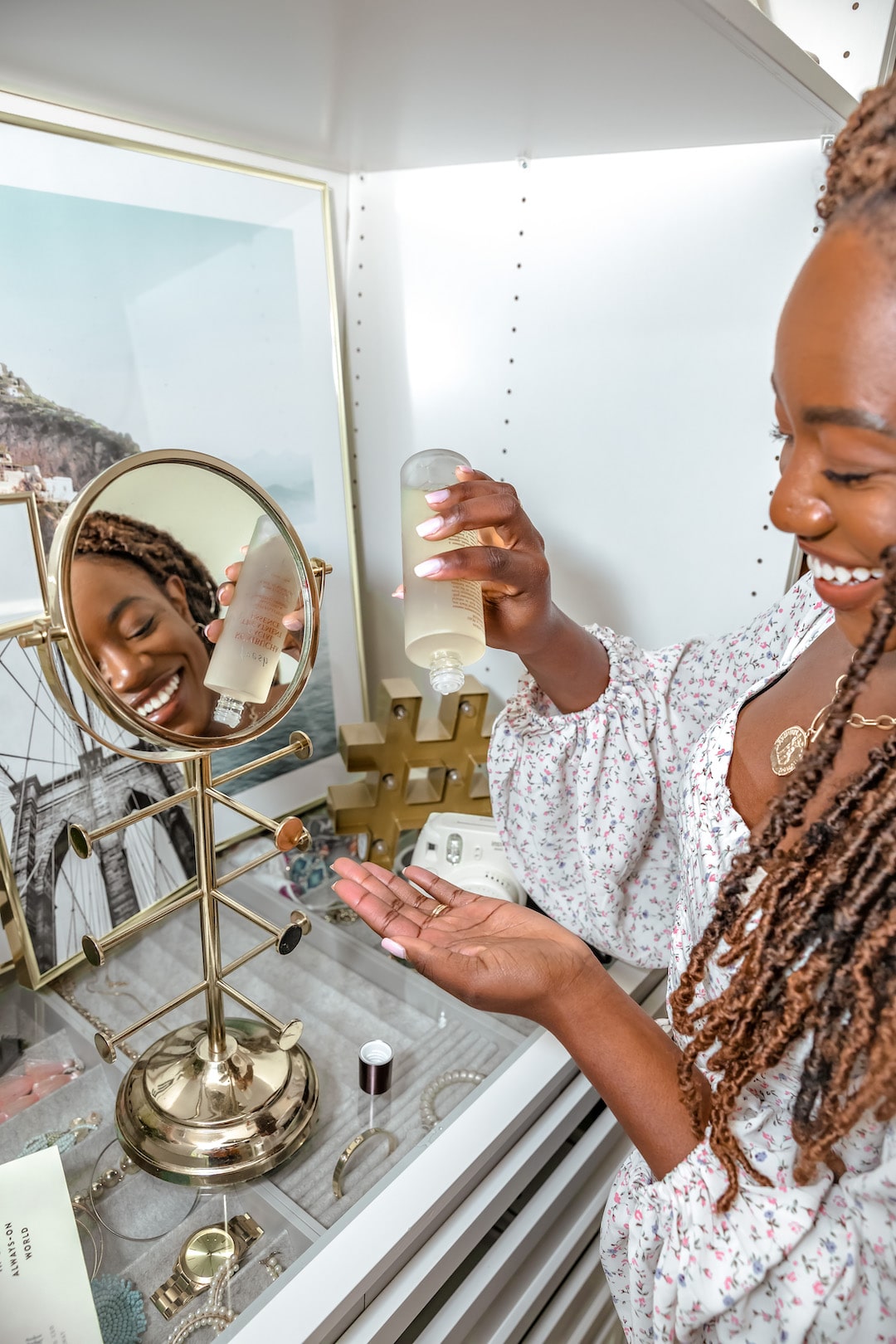

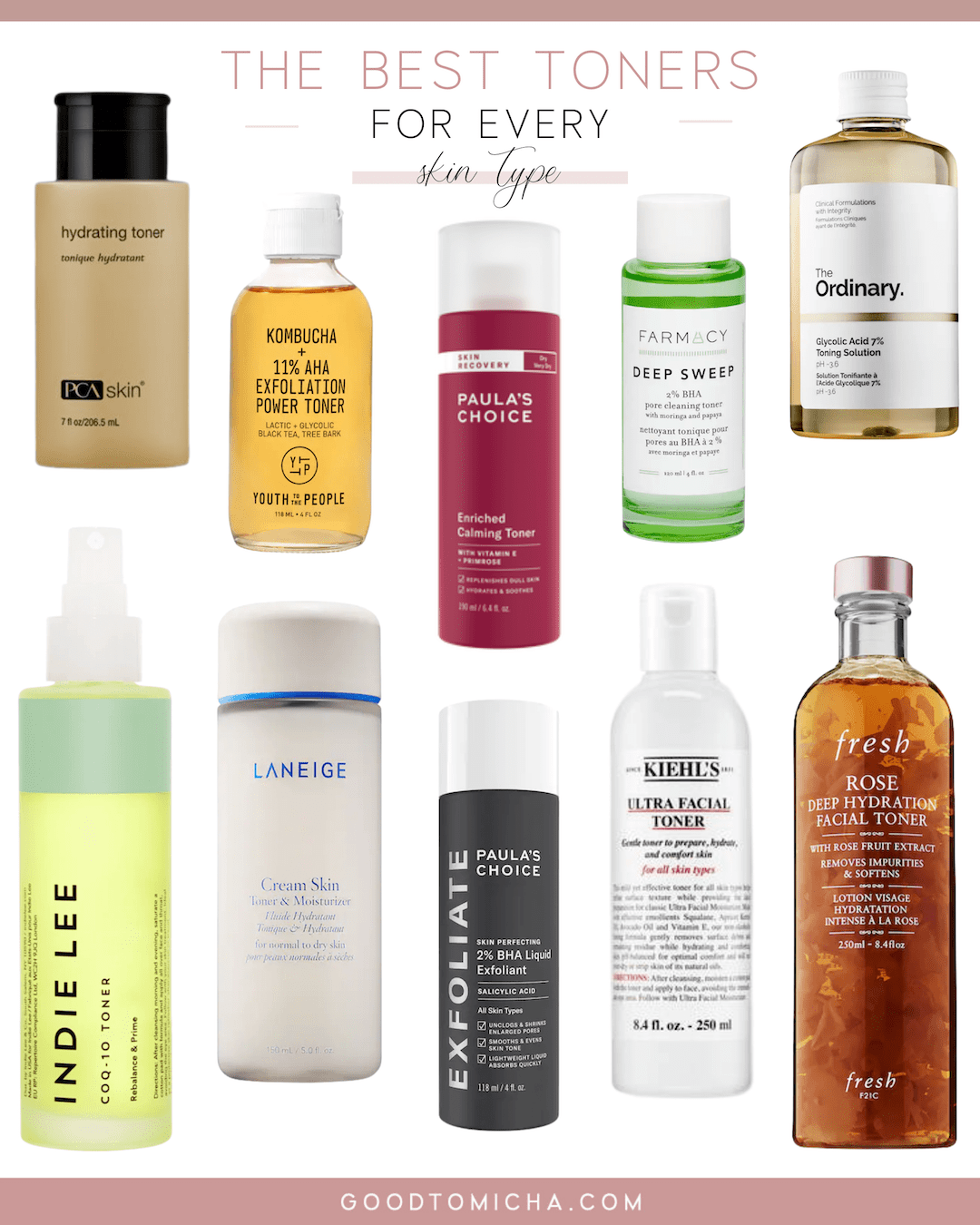
Debating about the efficacy of toners seems to be a common pastime in the skincare community. Dermatologists, estheticians, and your favorite skinfluencers are constantly divided about how to use toners or if they’re even necessary! One reason it might be so difficult to get a consensus is that there are multiple ways toner can be used to improve your skin. But if you’re acne-prone, suffer from dry skin, or just looking to spruce up your product shelf, you could benefit from adding one to your beauty routine. So, for the age-old question, ‘what does a toner actually do?’ It’s time to break down the pros and cons and see if it’s right for you.
No, not the thing your printer is always miraculously out of. Toner is a liquid skincare product filled with beneficial ingredients to help reduce the appearance of pores, remove impurities, and prep the skin for your next step. They can also lessen redness and flaking. Thankfully, facial toners are great for all skin types.
It might sound confusing to use a product just to help your skin absorb another product. But let’s think of it this way. Imagine that your toner works like a primer before foundation. Now, primers aren’t needed to make your foundation look flawless upon finish. However, they definitely help with the overall longevity and efficacy! In the same way, toners can help give your skin the boost it might be looking for.
At the same time, facial toners offer other benefits as well, like helping to rebalance your skin’s pH after cleansing. However, toner was first introduced into skincare routines when cleansers contained harsher ingredients that stripped the skin. Our skin’s natural moisture barrier usually functions the most healthily on a slightly acidic level of the pH scale–usually around 4.5-5. And an unbalanced moisture barrier can contribute to common issues like sensitivity and blemishes.
With more gentle cleansers available, the need for using a toner solely for pH purposes is unnecessary. This is one of the most common reasons why some experts argue against adding it to your routine.
But even if your skin is naturally oily, it’s important that your skincare products help maintain the balance of your natural moisture barrier. Overdrying may lead to your skin’s overproduction of oil and sebum in an effort to compensate, which doesn’t solve your problem.
So choosing your facial toner is all about replenishing and rebalancing the skin.
There are typically two types of toners on the market: exfoliating and hydrating. Exfoliating toners are formulated specifically for controlling your oil situation. Such facial toners typically contain a moderate amount of chemical exfoliants that, when applied with a cotton pad, help smooth away dead skin cells and debris build-up, improving your skin cell turnover rate and promoting healthier, brighter skin. Common ingredients to look out for are AHAs (glycolic acid, lactic acid), BHAs (salicylic acid), and fruit derivatives (pumpkin, pineapple, citric acid). These ingredients also help brighten dull skin and improve overall texture on the skin!
Does anyone else struggle with dry skin? And I’m not just talking about the colder months. Hydrating toners come packed with ingredients like forms of hyaluronic acid and glycerin that help maintain your skin’s hydration levels while also helping to maximize the absorbency of your moisturizer and serum. These are the best types of toners for normal-dry skin types as well as those who’d like to focus on skin prep. If you’ve been habitually overdrying your skin, a hydrating toner will likely be the way to go.
What toner should NOT do is cleanse your skin. If you’re sitting there in shock right now, don’t worry. It’s a common misconception! Often toners are mistaken as micellar water and used after cleansing to remove any residual makeup or dirt. If you take a cotton pad to your face after using your cleanser and still see dirt, chances are you need to start double-cleansing.
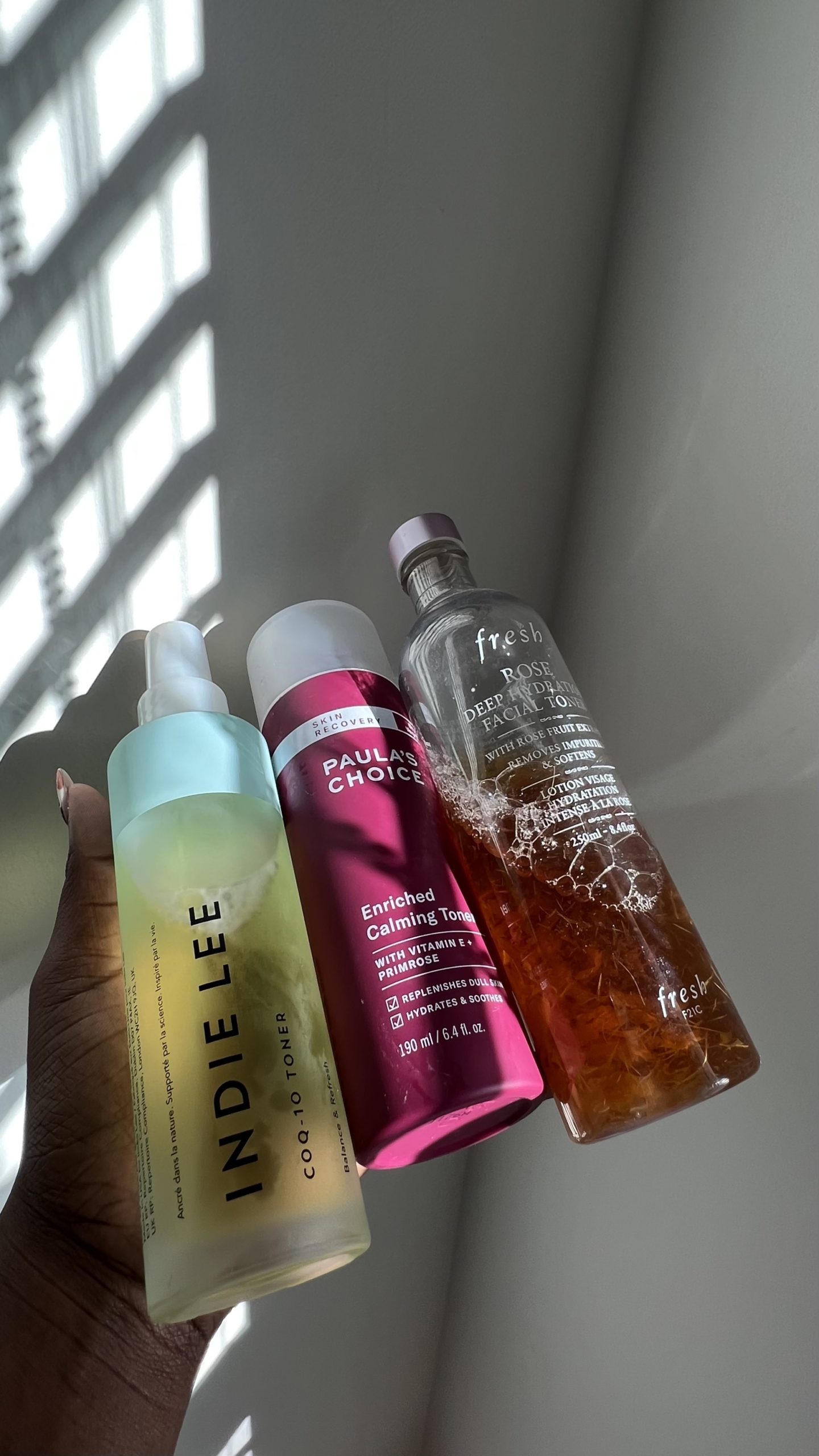
Are they absolutely necessary? No, they’re not. The 3 products necessary in any skincare routine are cleanser, moisturizer, and SPF. But since we all have different needs for our skin, you might have just come to the decision that you need to try one- woo! And when you find the right product, it can be an absolute gamechanger to your skin’s appearance.
Especially if your skin type trends more toward dry, might I suggest trying this one in particular? As a fellow dry skin sufferer, this product has been one of my favorites for the past 2 years! I can always tell a noticeable difference when it’s not in my routine.
The tricky thing to remember is that exfoliating toner should be used less frequently (2-3x week) during your nighttime routine. The ingredients can make the skin sensitive if overused and create the exact opposite of what your toner is trying to achieve. On the other hand, hydrating toners can be used 2x day/7 days a week because they have more calming properties! They’re applied in the same order after cleansing (or double-cleansing at night). Having done so, the surface of your skin will be primed and ready for your serums and moisturizer.
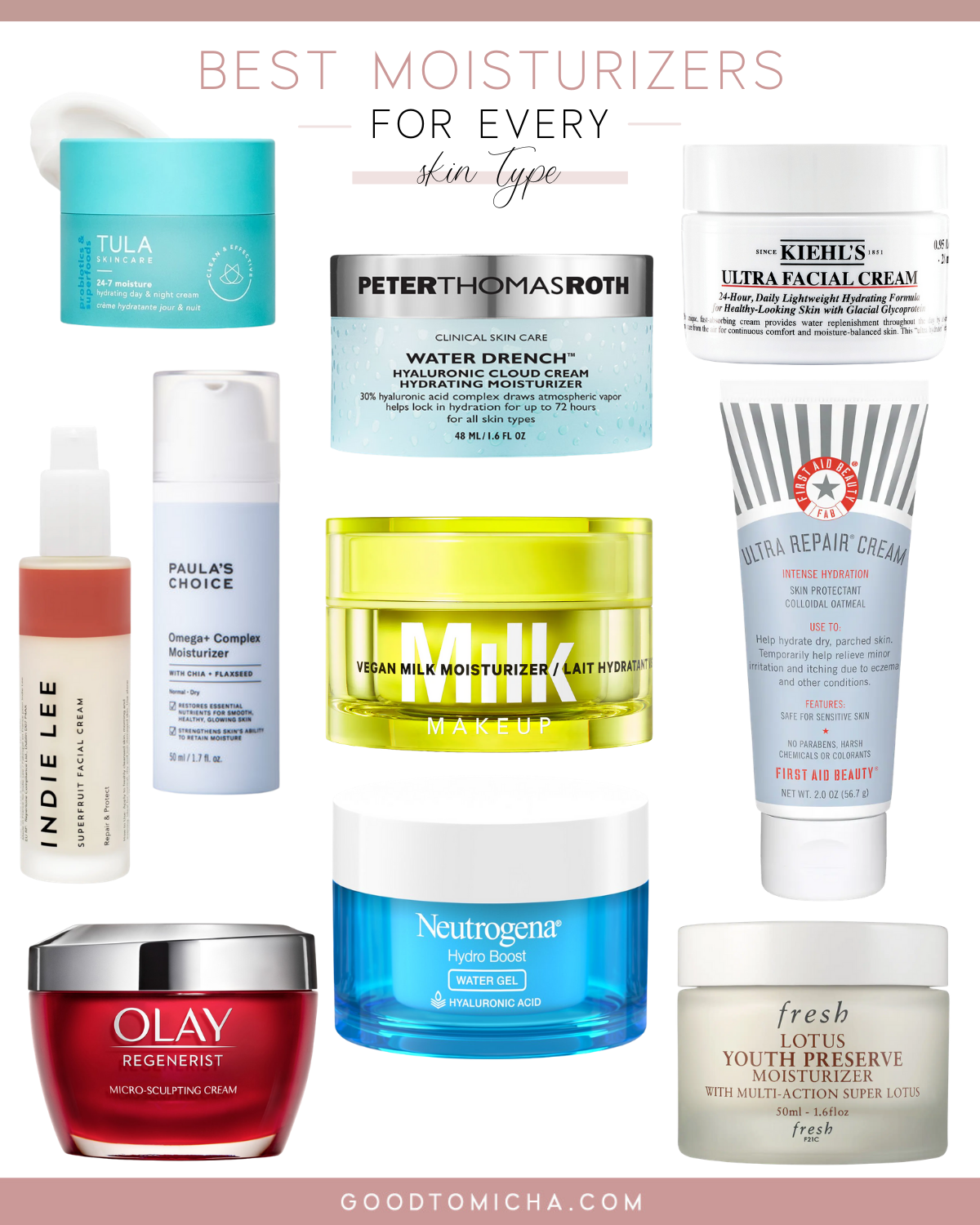
Apply your toner of choice to your cotton pad and wipe gently along your entire face and neck. Alternatively, I love using my hydrating toners by shaking a few drops into the palm of my hands and patting them directly into the skin. I find that it saves products and reduces the waste of cotton pads!
Water-Based Cleanser, Toner, vitamin c serum, eye cream, moisturizer, SPF
Oil Cleanser, Water-based cleanser, toner, retinol serum, moisturizer, facial oil
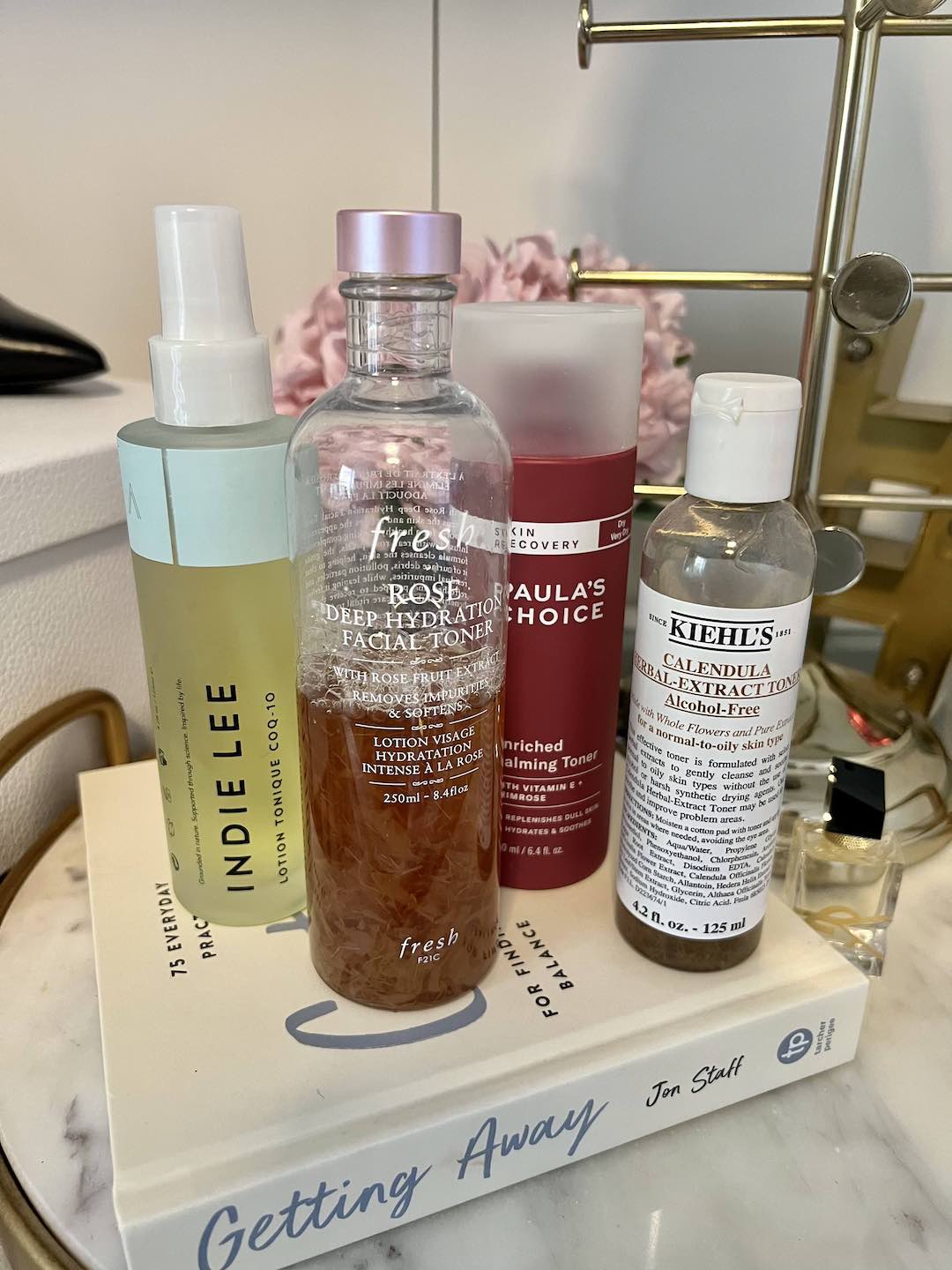
Do you use toner in your skincare routine? Let me know in the comments below!
Facebook | Twitter | TikTok | Instagram | Pinterest | YouTube
You Might Also Like… 20+ SUNSCREENS WITHOUT A WHITE CAST and I ADDED MICELLAR WATER TO MY NIGHTTIME ROUTINE AND MY SKIN HAS NEVER BEEN CLEARER